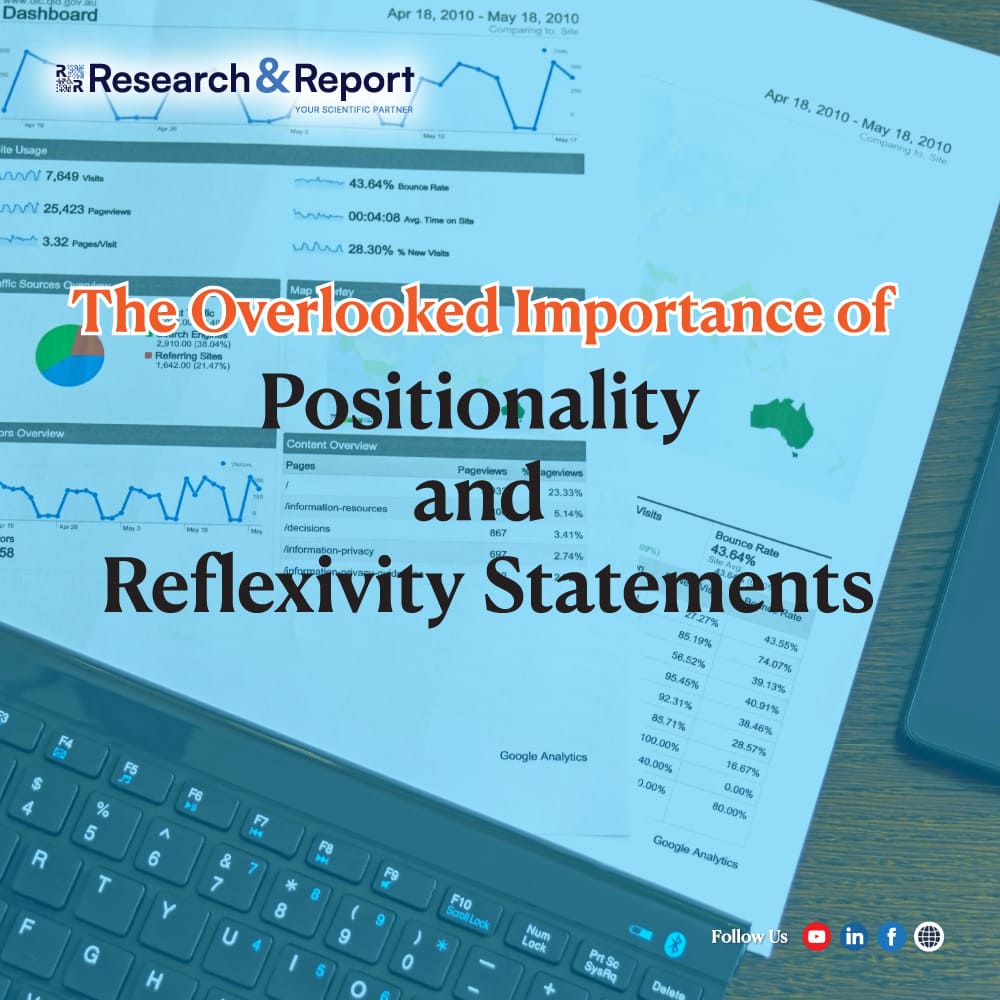In qualitative research, validity is not merely technical — it is deeply interpretive, ethical, and relational. Yet, while researchers meticulously detail methods, tools, and coding frameworks, they often gloss over or omit a critical component: positionality and reflexivity.
This oversight undermines not only the credibility of the study but also its epistemological integrity. At Research & Report, we consistently find that scholars—particularly early-career researchers and even seasoned academics—underestimate how identity, power, and context shape the production of knowledge.
What Are Positionality and Reflexivity?
- Positionality refers to the researcher’s identity and standpoint in relation to the research context, participants, and topic — including factors such as race, gender, class, nationality, institutional affiliation, and power.
- Reflexivity is the continuous process of critically examining how those positionalities influence every phase of the research — from framing questions to interpreting findings.
In essence, reflexivity asks not just what did you find, but how did your position affect what you found?
Critical Issues Most Researchers Overlook
Despite its importance, reflexivity is often reduced to a performative paragraph — if included at all. Here are the key gaps we repeatedly encounter:
1. Assumed Neutrality or Objectivity
Many qualitative researchers still approach data collection and interpretation as if they are neutral observers. This reflects a positivist residue inconsistent with interpretivist or constructivist paradigms.
There is no “view from nowhere” in qualitative research — pretending otherwise is misleading.
2. Static Identity Statements
Some researchers provide a one-time description of their demographic background but fail to reflect on how their role evolved over time or shifted depending on participant dynamics.
Reflexivity is dynamic — not a static self-description.
3. Power Relations Left Unexamined
How participants perceive the researcher — as insider, outsider, academic, authority, or peer — directly affects disclosure, trust, and co-construction of meaning. Yet this is rarely explored or reported.
Ignoring power is ignoring context — and context is the essence of qualitative work.
4. No Link to Method or Interpretation
A major failure is when reflexivity is not connected to the research process itself — such as how it shaped question design, recruitment, fieldwork ethics, or thematic interpretation.
Reflexivity must go beyond personal narrative — it must inform the methodology.
5. Reflexivity as Afterthought
All too often, researchers write reflexivity sections after data collection is complete. But reflexivity is not a postscript — it is an ongoing, iterative process throughout the study.
Why It Matters
- Trustworthiness: Positionality enhances transparency and allows readers to evaluate the credibility of your findings.
- Ethical Rigor: Acknowledging how your presence may influence the field is a form of ethical accountability.
- Analytical Depth: Reflexivity can open insights into the meta-levels of your data, revealing tensions, silences, and alternative interpretations.
Without it, your work may appear methodologically sound but epistemologically shallow.
Best Practices for Integrating Reflexivity
- Include a Positionality Statement Early
– Place it in the methodology section or as a dedicated reflexive subsection. - Reflect Across the Research Lifecycle
– From framing the problem to writing up the results, revisit how your position shaped decisions. - Make It Specific, Not Generic
– Go beyond “As a female researcher…” to explore how that identity was perceived, negotiated, or challenged in the field. - Embed Reflexivity in Fieldnotes
– Document moments of discomfort, conflict, influence, or transformation during fieldwork. - Engage With Reflexive Literature
– Cite works that support the interpretive role of the researcher and critique “neutrality” (e.g., Finlay, 2002; Pillow, 2003).
Final Thought
In qualitative research, you are not just the instrument — you are part of the data ecology. To ignore this is to ignore the conditions under which knowledge is produced.
Positionality and reflexivity are not optional add-ons — they are central to responsible, rigorous, and ethical qualitative inquiry.
Want expert guidance on crafting strong reflexivity statements, aligning paradigm and method, or publishing in top-tier qualitative journals?
Visit Research & Report for specialized support.

